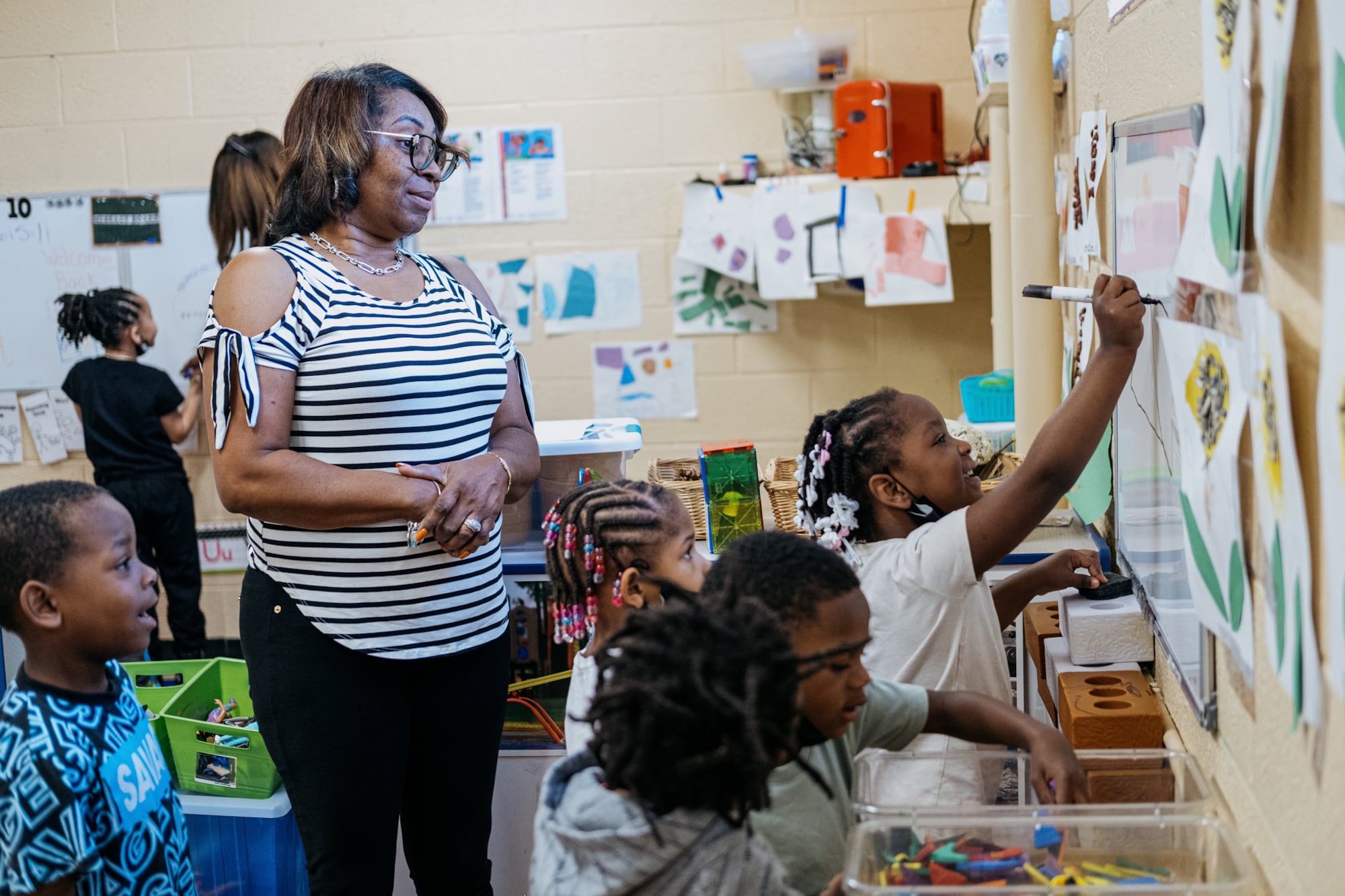Members of the Detroit Federation of Teachers voted overwhelmingly to ratify a one-year deal with the Detroit Public Schools Community District that raises pay for senior teachers by 6% and provides retention bonuses to all members.
About a third of the teachers union’s 4,300 members voted on the contract for 2023-24. The official tally from the union was 1,121 in favor, or 73%, and 406 voting no. The deal will be retroactive to July 1, when the previous contract period ended.
The deal was reached on Aug. 20, hours before an extension on the previous contract was set to expire. Voting on ratification began Monday evening and ended at noon Friday.
“We’re making ground,” DFT President Lakia Wilson-Lumpkins told Chalkbeat Friday after the vote. “We’re making a huge step forward in the right direction. We’re excited to see increases for all DFT bargaining unit members. And we are back at the table in the spring.”
The deal initially met opposition from some members who argued that the contract provided only minimal gains and that members weren’t sufficiently involved in the negotiations.
What’s in the contract?
Under the new contract, teachers at the top of the pay scale will earn a base salary of roughly $74,000 this school year, a 6% increase from their previous contract, according to a copy of the deal obtained by Chalkbeat Wednesday.
The agreement includes no pay raise for the lower levels of the pay ladder, but all of those teachers will move up a step, which means their pay will go up roughly 2.4%.
“Attention must be paid to the maximum salary in order to retain our members,” Wilson-Lumpkins said. “Once they reach the end, you should expect to be recognized for your loyalty and experience that you have achieved by remaining with the district.”
Roughly 65% of the union’s bargaining unit members are on the top level of the pay scale, she added.
In addition to teachers at the top of the scale, academic interventionists are set to receive a 6% salary increase. DPSCD officials intend to use part of a philanthropic donation from billionaire MacKenzie Scott to hire 73 academic interventionists to work one-on-one or in small groups with students at select schools who need math or reading intervention.
Bonuses negotiated under the previous contract will return, including a $4,500 longevity bonus for teachers with more than 15 years of service, a $2,000 retention bonus for all members, and a $2,000 bonus for members at the top step.
Other carryovers from the previous contract include a $15,000 bonus for special education teachers, on top of last year’s.
Ethan Bakuli is a reporter for Chalkbeat Detroit covering Detroit Public Schools Community District. Contact Ethan at ebakuli@chalkbeat.org.






